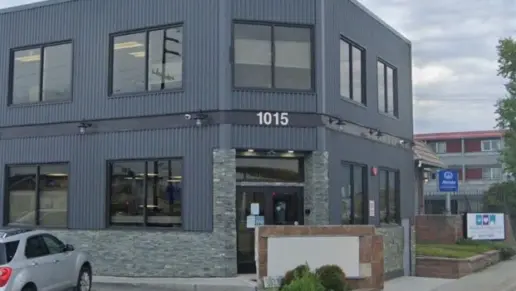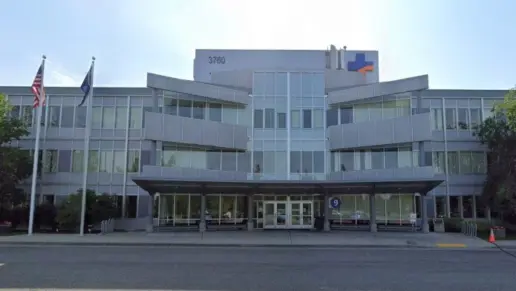About Fresh Start
Fresh Start, in Fairbanks, Alaska, provides comprehensive mental and behavioral health services for youth and adults, including specialized programming for adolescents, young adults, seniors, pregnant and postpartum women, intravenous drug users, and persons with co-occurring disorders. They are state-licensed and offer crisis intervention, medically supervised detox, and inpatient, outpatient, and aftercare programming.
Their inpatient programs allow clients to focus on their recovery in a highly structured and supportive environment featuring round-the-clock clinical supervision. Clients undergoing detox may be prescribed FDA-approved medications to ease withdrawal symptoms and prevent complications. Clients receive medical and mental health assessments, personalized care plans, and complete case management. They also engage in intensive individual, group, and family counseling and robust, age-specific, recovery-focused life skills training addressing topics such as coping, self-care, medication management, anger management, and relapse prevention.
Their outpatient programs encompass multiple levels of care aligned with clients’ evolving needs and include continuing addiction counseling and recovery education. Their aftercare services may involve transitional support, 12 step program facilitation, employment and housing assistance, and referrals for additional services.
Fresh Start works with major insurers, such as Aetna, Cigna, BlueCross BlueShield, Humana, United Healthcare, Medicare, Medicaid, and others. Out of network benefits can vary. Contact your provider to confirm coverage. Financial assistance is available.
 Payment Options
Payment Options
Self-pay options
Private insurance
Medicaid
Medicare
 Levels of Care
Levels of Care
 Outpatient
Outpatient
Outpatient Programs (OP) are for those seeking mental rehab or drug rehab, but who also stay at home every night. The main difference between outpatient treatment (OP) and intensive outpatient treatment (IOP) lies in the amount of hours the patient spends at the facility. Most of the time an outpatient program is designed for someone who has completed an inpatient stay and is looking to continue their growth in recovery. Outpatient is not meant to be the starting point, it is commonly referred to as aftercare.
 Intensive Outpatient
Intensive Outpatient
Intensive Outpatient Programs (IOP) are for those who want or need a very structured treatment program but who also wish to live at home and continue with certain responsibilities (such as work or school). IOP substance abuse treatment programs vary in duration and intensity, and certain outpatient rehab centers will offer individualized treatment programs.
 Aftercare Support
Aftercare Support
Completing a drug or alcohol rehab program shouldn't spell the end of substance abuse treatment. Aftercare involves making a sustainable plan for recovery, including ongoing support. This can include sober living arrangements like halfway houses, career counseling, and setting a patient up with community programs like Alcoholics Anonymous (AA) or Narcotics Anonymous (NA).
 Programs
Programs
 Adult program
Adult program
 Program for men
Program for men
 Program for women
Program for women
 Young adult program
Young adult program
 Settings & Amenities
Settings & Amenities
-
Private setting
 Insurance
Insurance
Our Policy: Fresh Start works with several private insurance providers and also accepts private payments when possible, please contact us to verify your specific insurance provider.
 Treatment
Treatment
 Alcoholism
Alcoholism
The goal of treatment for alcoholism is abstinence. Those with poor social support, poor motivation, or psychiatric disorders tend to relapse within a few years of treatment. For these people, success is measured by longer periods of abstinence, reduced use of alcohol, better health, and improved social functioning. Recovery and Maintenance are usually based on 12 step programs and AA meetings.
 Drug Addiction
Drug Addiction
During drug rehab in Alaska, you'll receive a combination of medical and psychotherapeutic treatments that are designed to treat drug dependency. The goal of drug rehab is to break this dependency and help you develop the skills to maintain a drug-free life.
 Dual Diagnosis
Dual Diagnosis
Many of those suffering from addiction also suffer from mental or emotional illnesses like schizophrenia, bipolar disorder, depression, or anxiety disorders. Rehab and other substance abuse facilities treating those with a dual diagnosis or co-occurring disorder administer psychiatric treatment to address the person's mental health issue in addition to drug and alcohol rehabilitation.
 Mental Health and Substance Abuse
Mental Health and Substance Abuse
A combined mental health and substance abuse rehab has the staff and resources available to handle individuals with both mental health and substance abuse issues. It can be challenging to determine where a specific symptom stems from (a mental health issue or an issue related to substance abuse), so mental health and substance abuse professionals are helpful in detangling symptoms and keeping treatment on track.
 Opioid Addiction
Opioid Addiction
Opioid rehabs specialize in supporting those recovering from opioid addiction. They treat those suffering from addiction to illegal opioids like heroin, as well as prescription drugs like oxycodone. These centers typically combine both physical as well as mental and emotional support to help stop addiction. Physical support often includes medical detox and subsequent medical support (including medication), and mental support includes in-depth therapy to address the underlying causes of addiction.
 Clinical Services
Clinical Services
 Family Therapy
Family Therapy
Research clearly demonstrates that recovery is far more successful and sustainable when loved ones like family members participate in rehab and substance abuse treatment. Genetic factors may be at play when it comes to drug and alcohol addiction, as well as mental health issues. Family dynamics often play a critical role in addiction triggers, and if properly educated, family members can be a strong source of support when it comes to rehabilitation.
 Group Therapy
Group Therapy
Group therapy is any therapeutic work that happens in a group (not one-on-one). There are a number of different group therapy modalities, including support groups, experiential therapy, psycho-education, and more. Group therapy involves treatment as well as processing interaction between group members.
 Individual Therapy
Individual Therapy
In individual therapy, a patient meets one-on-one with a trained psychologist or counselor. Therapy is a pivotal part of effective substance abuse treatment, as it often covers root causes of addiction, including challenges faced by the patient in their social, family, and work/school life.
 Accreditations
Accreditations

CARF
The Commission on Accreditation of Rehabilitation Facilities (CARF) is a non-profit organization that specifically accredits rehab organizations. Founded in 1966, CARF's, mission is to help service providers like rehab facilities maintain high standards of care.
CARF Accreditation: Yes
Accreditation Number: 260086







